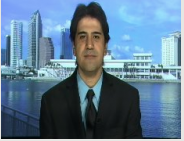The smiles of Iranian President Hassan Rowhani and his American-educated Foreign Minister Mohammad Javad Zarif appear to be fading as the hardliners take back the driver's seat. Rowhani spent all his political capital on the nuclear deal, to which the hardliners are reacting harshly.
Iran has halted the dismantling of its centrifuges in two uranium-enrichment plants (Natanz and Fordow), in violation of the terms of the deal. This occurred because 20 hard-line lawmakers wrote a letter to Rowhani saying dismantling the centrifuges was too rushed.
This reveals that the deal is not a treaty or a legally binding contact, but only a set of understandings. Iran's hardliners will add conditions or stop implementation anytime and for any reason that suits them.
Meanwhile, Iran's judiciary chief Sadegh Larijani condemned Rowhani's criticism of the judiciary and state media, and hardliners have increased their crackdown on journalists and political critics.
Hardliners' victory
The hardliners and moderates shared a common interest in a nuclear deal in order to have sanctions on Iran lifted. Rowhani's camp also wanted to win the popular vote. His team scored a political victory and gained considerable popularity due to the deal. This was inevitably going to irk the hardliners.
Although both political camps share the same goal of preserving the political and religious establishment, they differ in their methods. Hardliners say rapprochement with the West, particularly the United States, will lead to the collapse of the establishment. Hence they advocate a relatively closed political and economic system that they can monopolize.
Rowhani's camp says Iran can be strengthened if restrictions are loosened and ties with the West are improved. That is why a more liberal image of Iran has been projected to the international community by Rowhani and Zarif.
However, the hardliners are increasing their crackdown on civil liberties in order to send a message that the nuclear deal does not mean Tehran will open up and liberalize its political system. They are also attempting to decrease the popularity of the moderates before the February elections by showing people that what Rowhani promised has not been fulfilled.
Khamenei's modus operandi
Iran's Supreme Leader Ayatollah Ali Khamanei and his hardline base mostly fear U.S. political and cultural infiltration in Iranian society due to the nuclear deal and bilateral talks. "The main purpose of the enemies is for Iranians to give up on their revolutionary mentality... Enemy means global arrogance, the ultimate symbol of which is the United States," said Khamenei.
"Economic and security breaches are definitely dangerous and have dire consequences... but political and cultural intrusion by the enemy is a more serious danger that everyone should be vigilant about."
Khamenei uses both the moderates and hardliners for his interests, but leans toward the latter. Hardliners are less likely to criticize the president without permission from the supreme leader. In order to curb Rowhani's popularity, Khamenei's modus operandi is to use the hardliners against the moderates. He effectively utilized this approach during Mahmoud Ahmadinejad's presidency.
It does not matter whether a reformist president governs Iran. The hardliners (the judiciary, intelligence, supreme leader, and Revolutionary Guard) control the social, political and economic landscapes. Having signed the nuclear deal, we are likely to see less of Rowhani, his team and their sunny disposition, and more hardliner reassertion of power domestically and regionally.
Dr. Majid Rafizadeh, an American scholar and political scientist, is the president of the International American Council on the Middle East. Harvard-educated, Rafizadeh serves on the advisory board of Harvard International Review. He is originally from Iran and Syria. You can contact him at Dr.rafizadeh@post.harvard.edu or follow him at @majidrafizadeh
This post first appeared on Al Arabiya.

